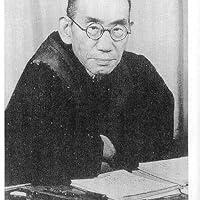
Kitarō Nishida
Sobre el Autor
Kitarō Nishida was a prominent Japanese philosopher known for founding the Kyoto School of philosophy. His work often centered around the concept of 'absolute nothingness,' which he explored in depth through his writings and teachings. Nishida's philosophical inquiries were influenced by both Eastern and Western thought, as he sought to integrate Zen Buddhism with Western philosophical traditions, particularly those of Kant and Hegel. His major works include 'Last Writings: Nothingness and the Religious Worldview' and 'Intuition and Reflection in Self-Consciousness,' where he articulates his ideas on consciousness and the nature of reality.
Nishida's contributions to philosophy extended beyond mere theoretical discussions; he engaged in a profound dialogue with contemporary issues in society and ethics. His thoughts on the relationship between self and the world influenced many later thinkers and continue to resonate in philosophical discourse today. Nishida's legacy is marked by his unique approach to metaphysics and his ability to bridge cultural divides, making him a significant figure in both Japanese and global philosophy.